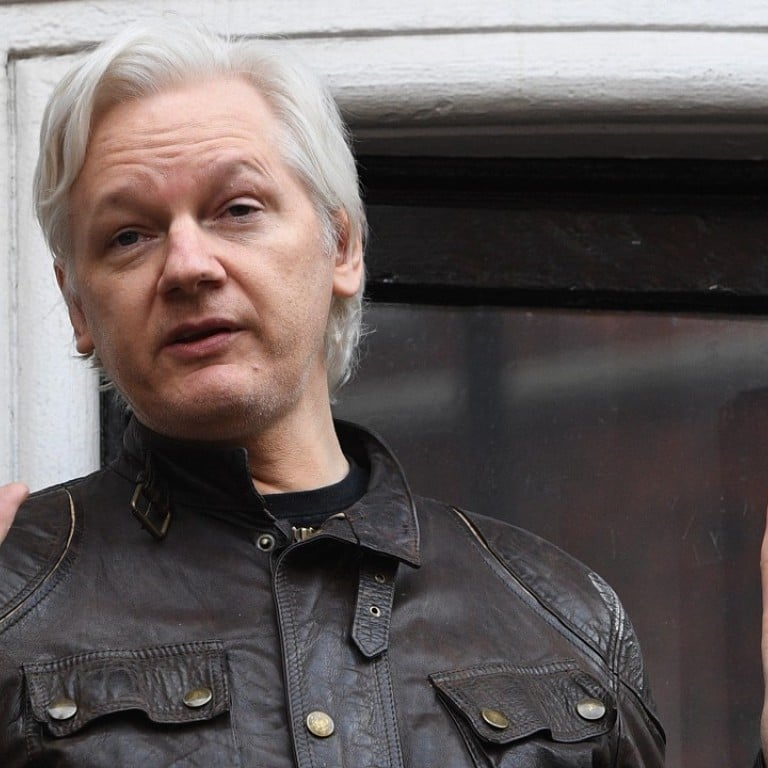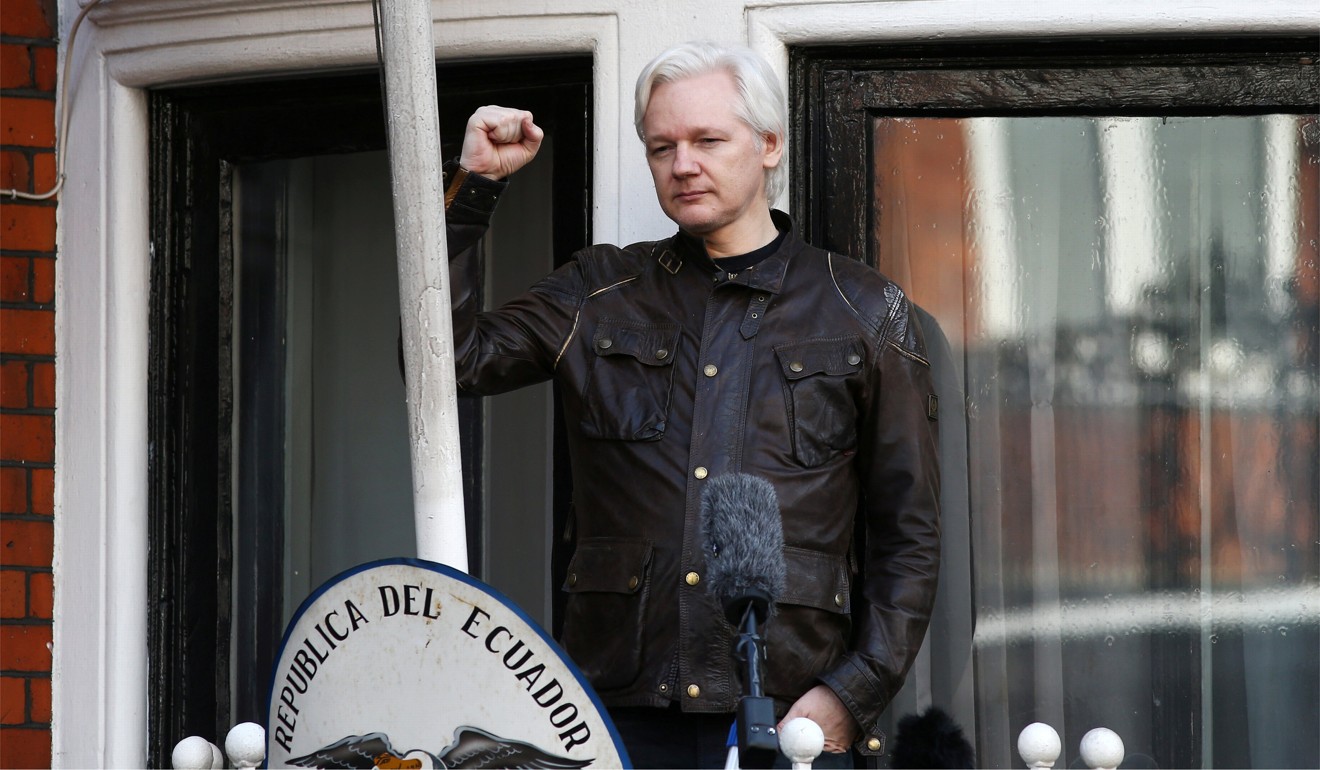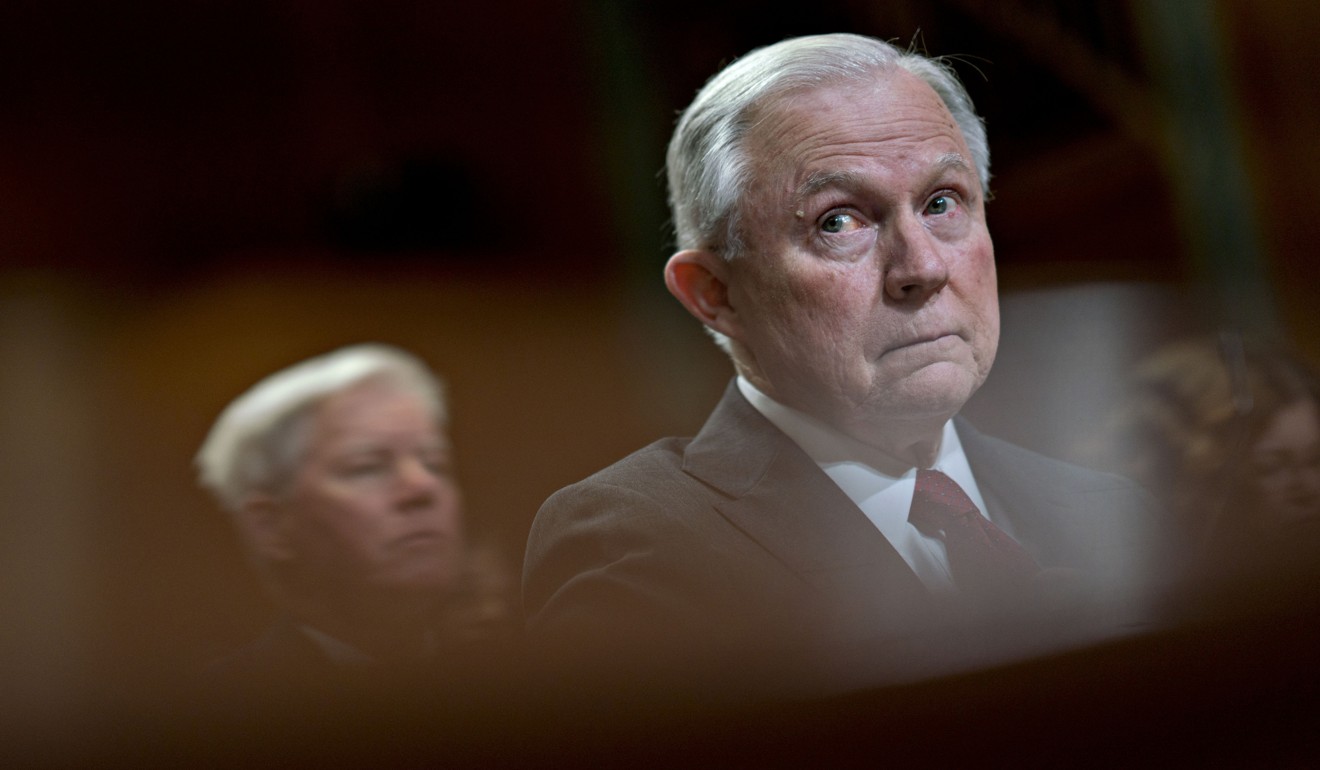
WikiLeaks founder Julian Assange charged in secret by US, prosecutors accidentally reveal
- In apparent ‘cut-and-paste error’ in unrelated filing, lawyer asked judge to ‘keep confidential fact that Assange has been charged’ until he is arrested
American prosecutors have obtained a sealed indictment against WikiLeaks founder Julian Assange, whose website published thousands of classified US government documents, a US federal court document showed on Thursday.
The document, which prosecutors insist was filed by mistake, asks a judge to seal documents in a criminal case unrelated to Assange, and carries markings indicating it was originally filed in US District Court in Alexandria, Virginia in August.

Assistant US Attorney Kellen Dwyer, urging a judge to keep the matter sealed, wrote “due to the sophistication of the defendant and the publicity surrounding the case, no other procedure is likely to keep confidential the fact that Assange has been charged”. Later, Dwyer wrote the charges would “need to remain sealed until Assange is arrested”.
Dwyer is also assigned to the WikiLeaks case. People familiar with the matter said what Dwyer was disclosing was true, but unintentional.
Barry Pollack, one of Assange’s lawyers, said: “The only thing more irresponsible than charging a person for publishing truthful information would be to put in a public filing information that clearly was not intended for the public and without any notice to Mr Assange. Obviously, I have no idea if he has actually been charged or for what, but the notion that the federal criminal charges could be brought based on the publication of truthful information is an incredibly dangerous precedent to set.”

Any charges against Assange could help illuminate the question of whether Russia coordinated with the Trump campaign to sway the 2016 presidential election. It would also suggest that, after years of internal wrangling within the Justice Department, prosecutors have decided to take a more aggressive tact against the secret-sharing website.
The filing had been sealed until early September, though by itself it attracted little notice.
On Thursday evening, Seamus Hughes, deputy director of the Programme on Extremism at George Washington University, joked about the apparent error on Twitter – which first brought it to the attention of reporters.
WikiLeaks tweeted it was an “apparent cut-and-paste error”.
US officials had no comment on the disclosure and it is unclear what charges Assange faces.
Joshua Stueve, a spokesman for the prosecutors’ office which filed the document that was unsealed, said: “The court filing was made in error. That was not the intended name for this filing.”
US officials have previously acknowledged that federal prosecutors based in Alexandria have been conducting a lengthy criminal investigation into WikiLeaks and its founder.

Representatives of the administration of US President Donald Trump, including Secretary of State Mike Pompeo and former attorney general Jeff Sessions, have publicly called for Assange to be aggressively prosecuted.
WikiLeaks founder Julian Assange is willing to testify in Russian election meddling investigation, according to his associate
Facing extradition from Britain to Sweden to be questioned in a sexual molestation case, Assange six years ago took refuge in Ecuador’s London embassy. He argued that the case was a pretext for what he predicted would be his arrest and extradition to the United States.
Judge throws out Julian Assange lawsuit, he must clean up after cat
In the years since, the Swedish case has been closed, but Assange has said he cannot risk leaving the embassy because the US would try to have him arrested and extradited for disclosures of US government secrets. Throughout that time, the US has refused to say whether there are any sealed charges against Assange.
If Assange were to leave the embassy and be arrested by British authorities, he would probably still fight extradition in the British courts.
The Washington Post, Reuters

